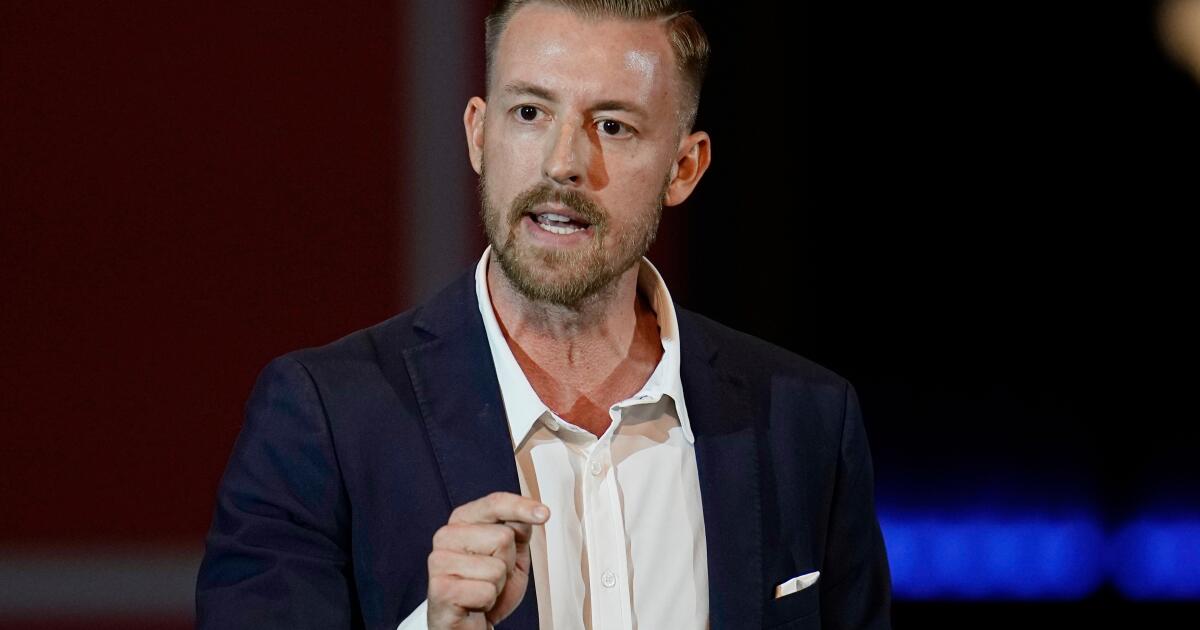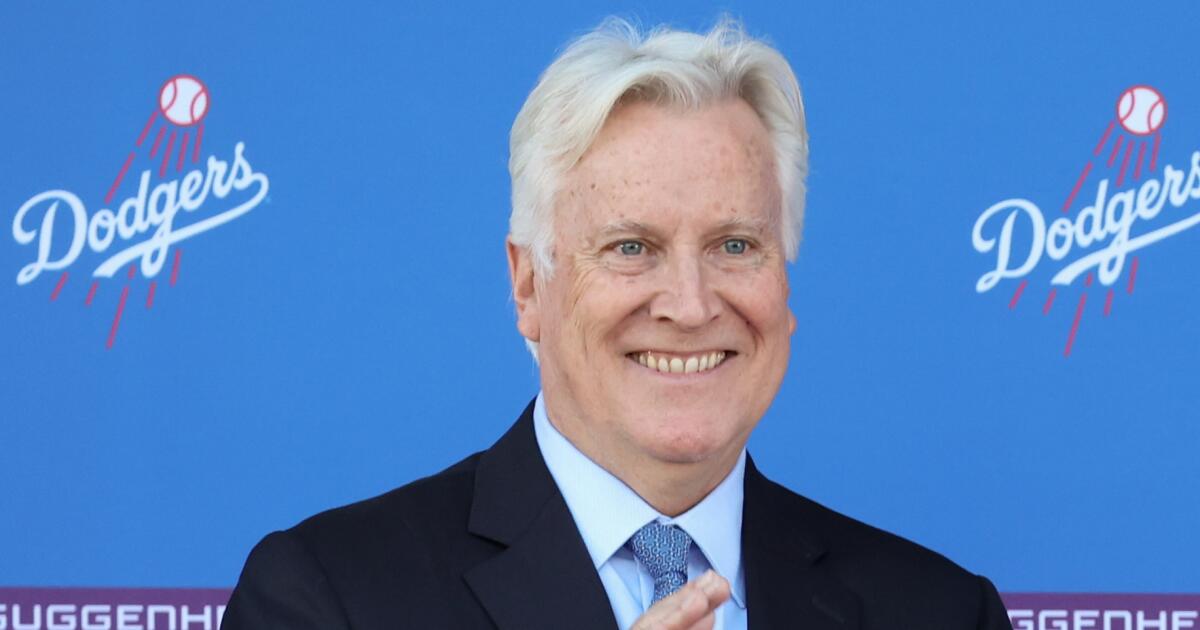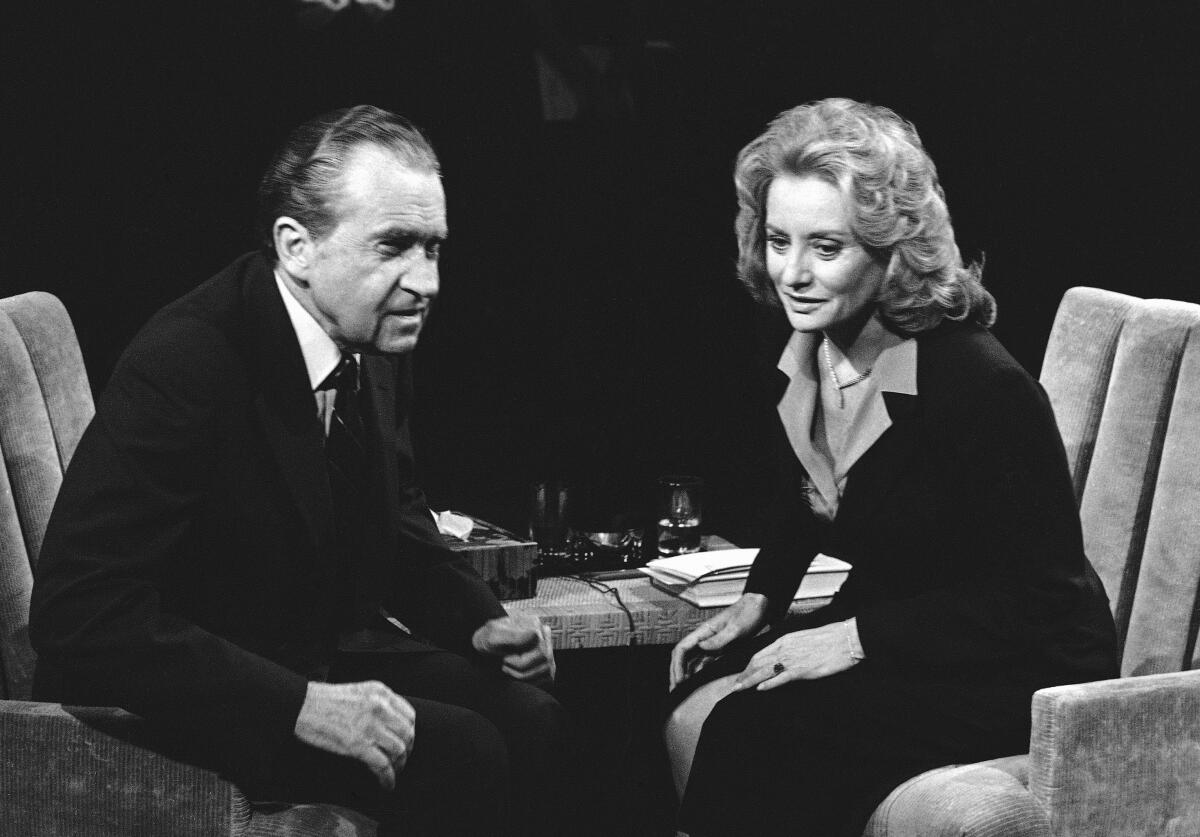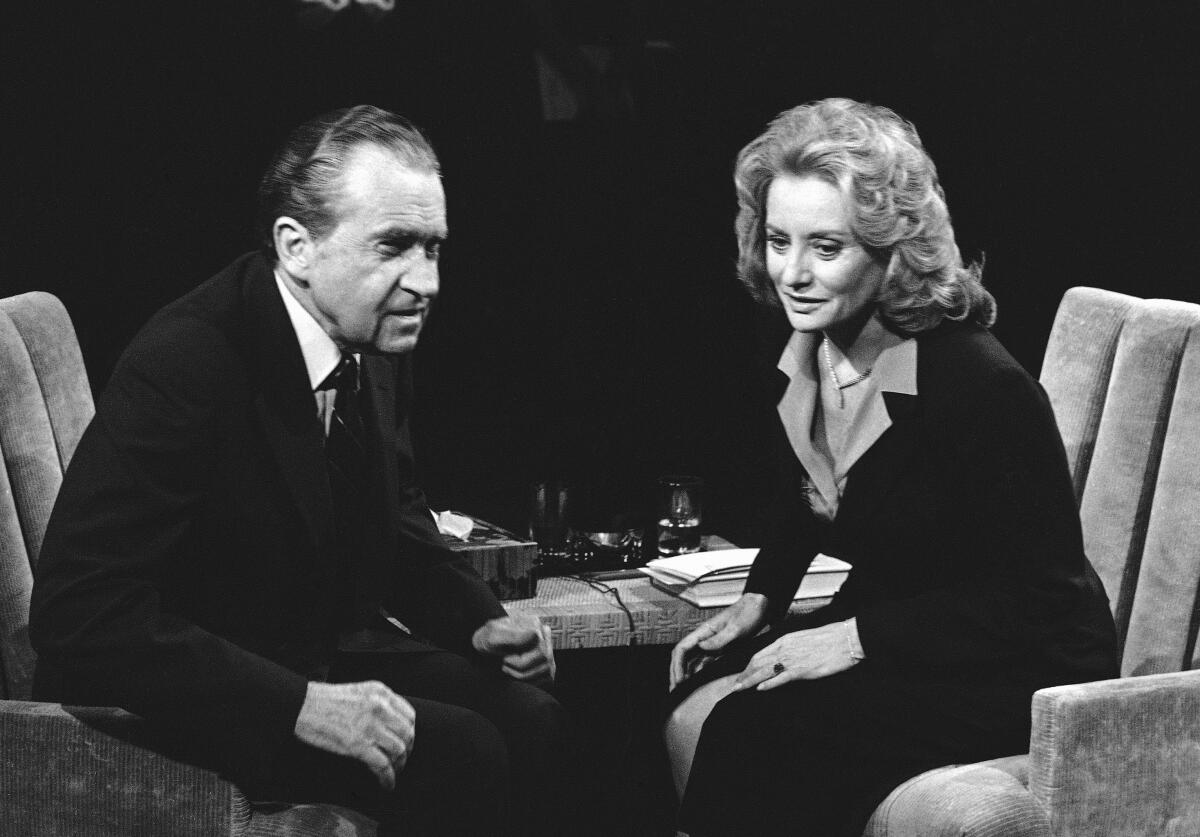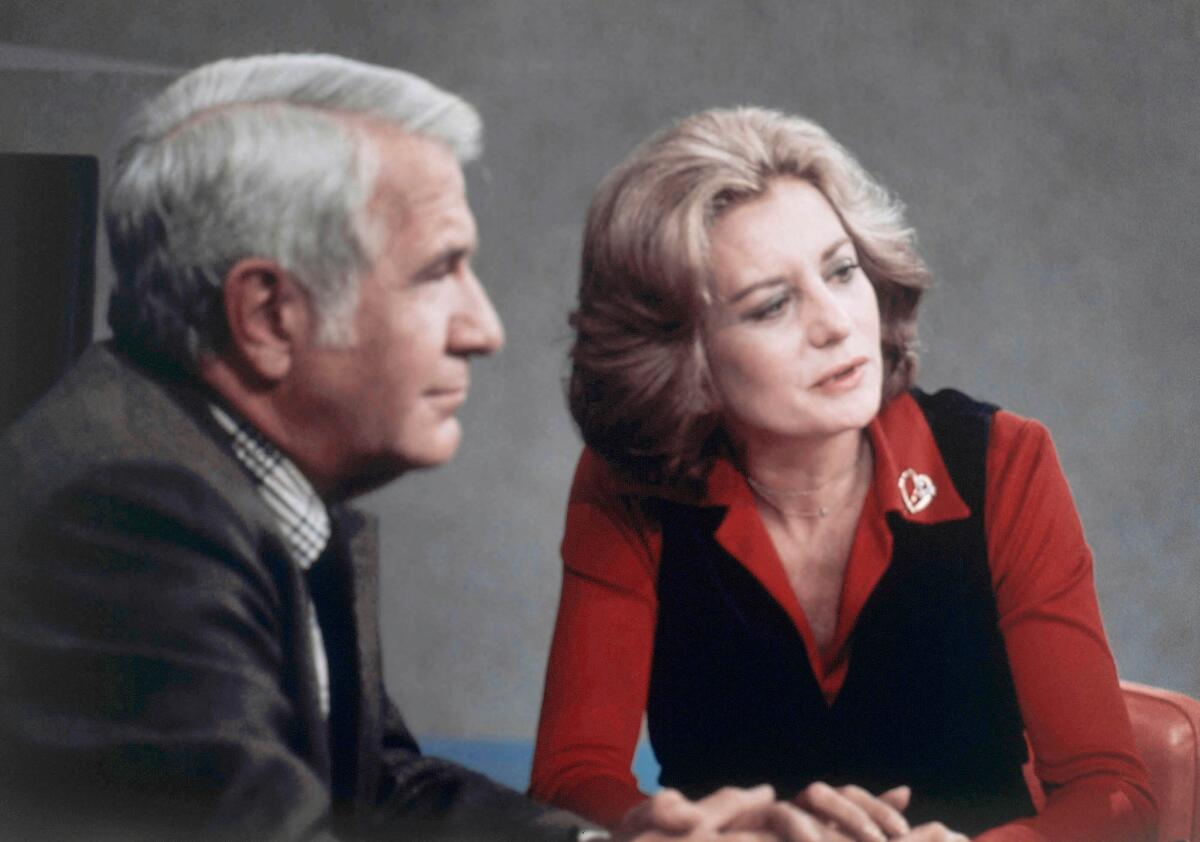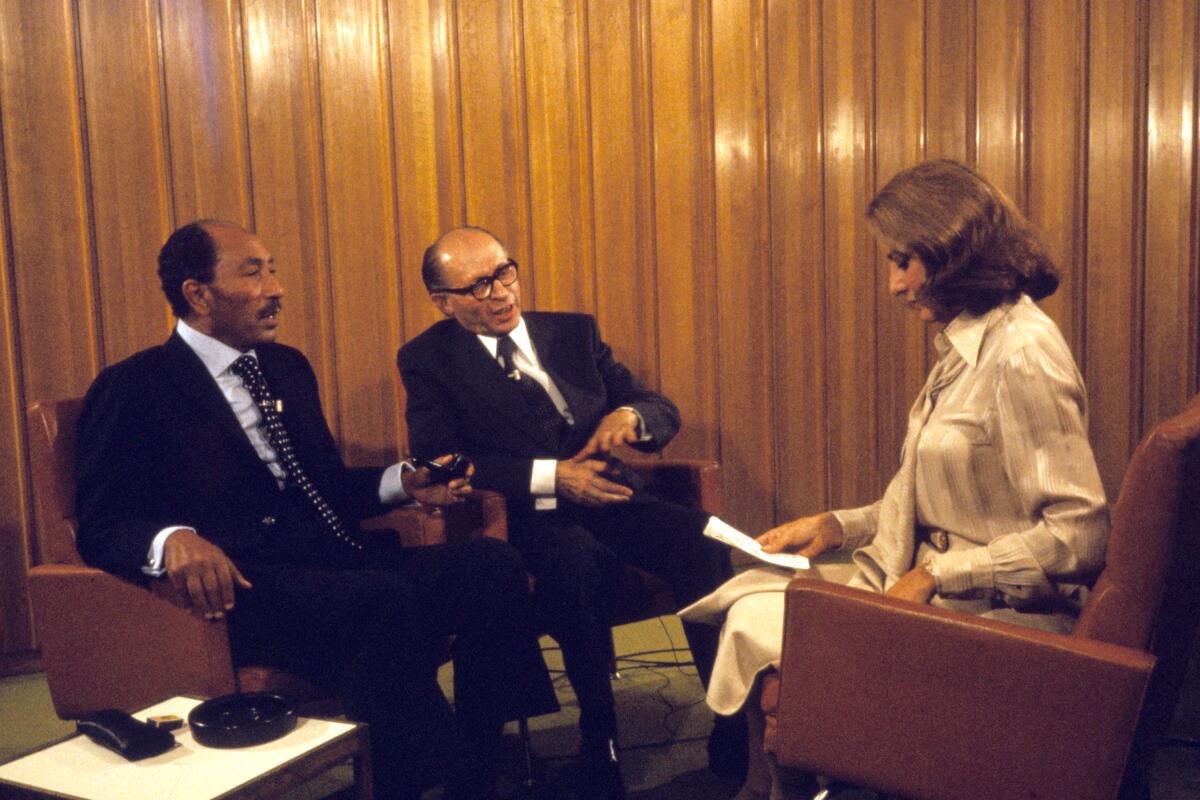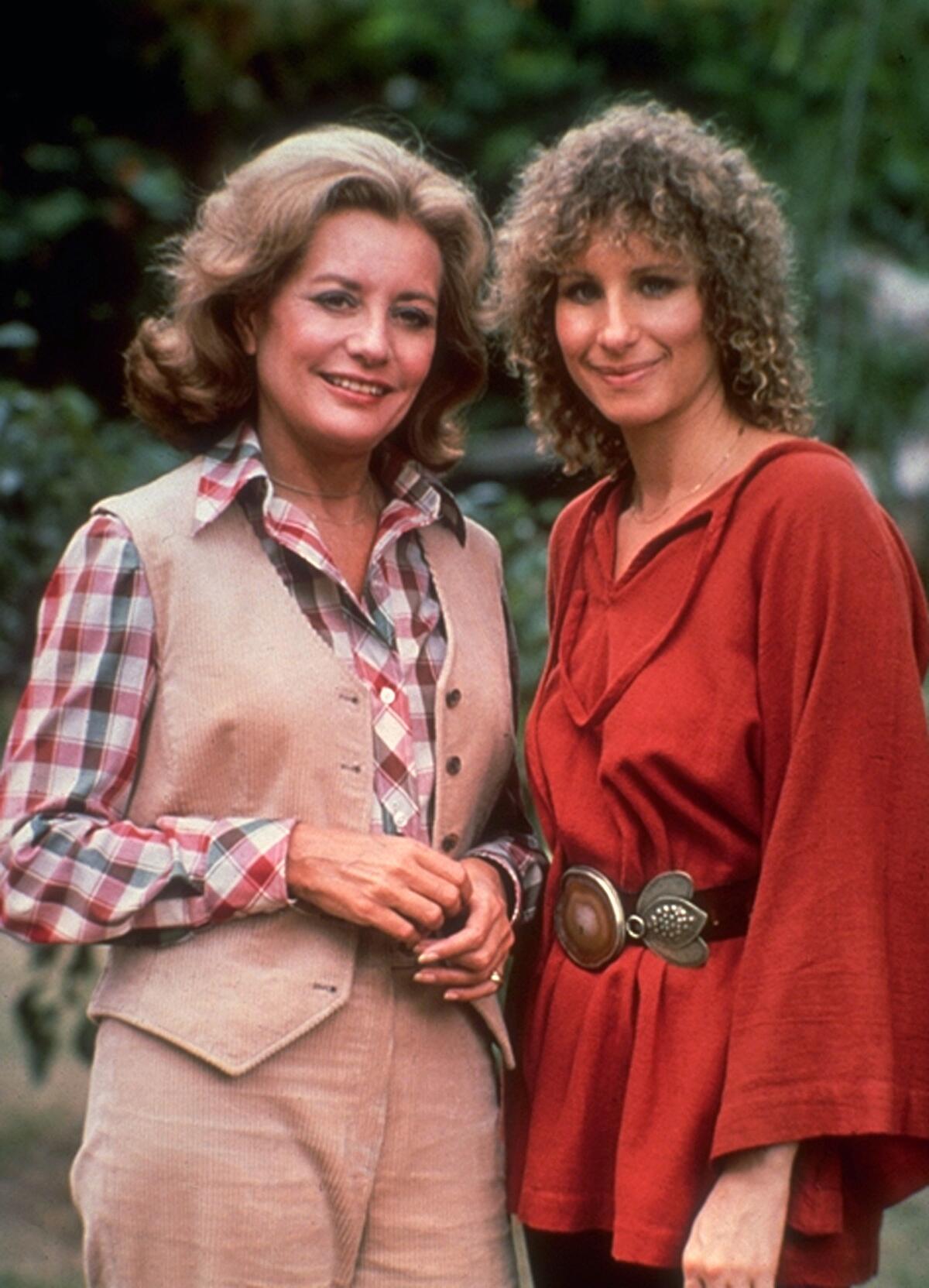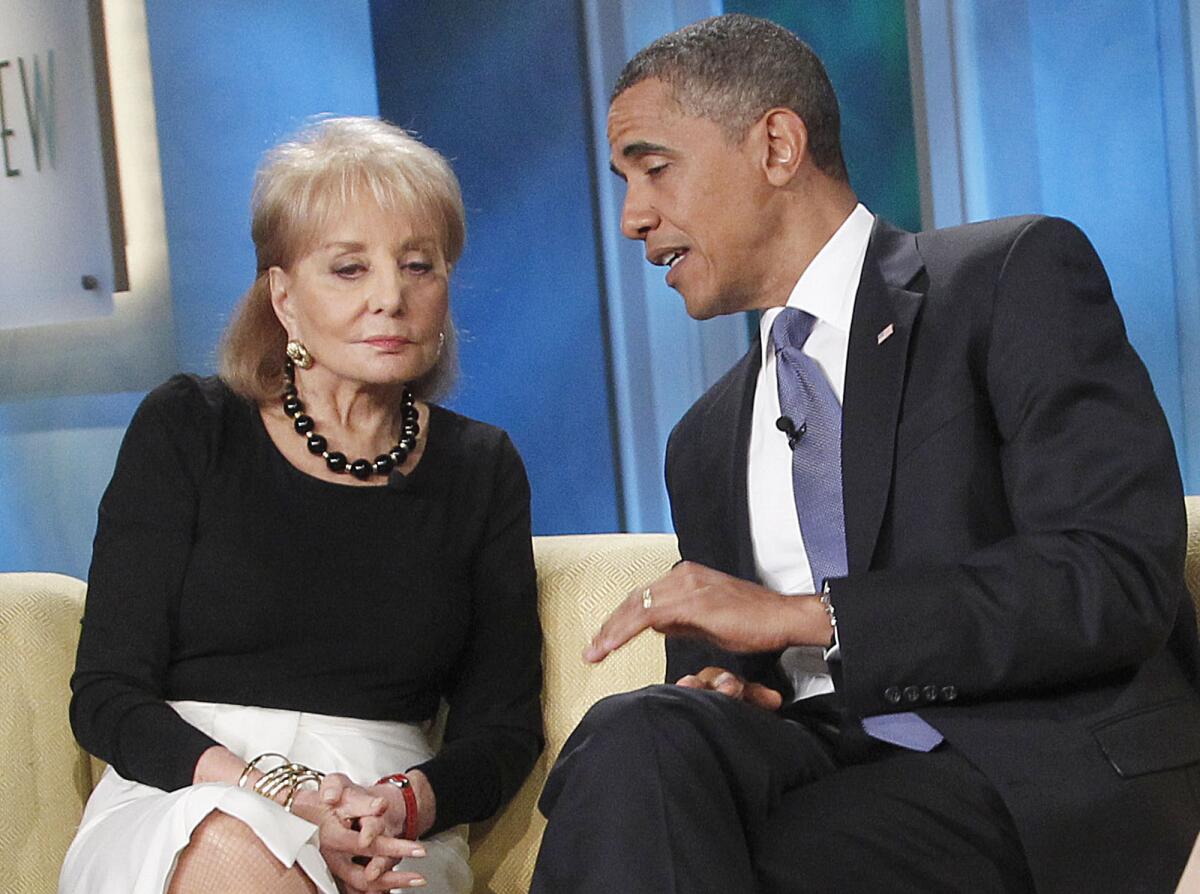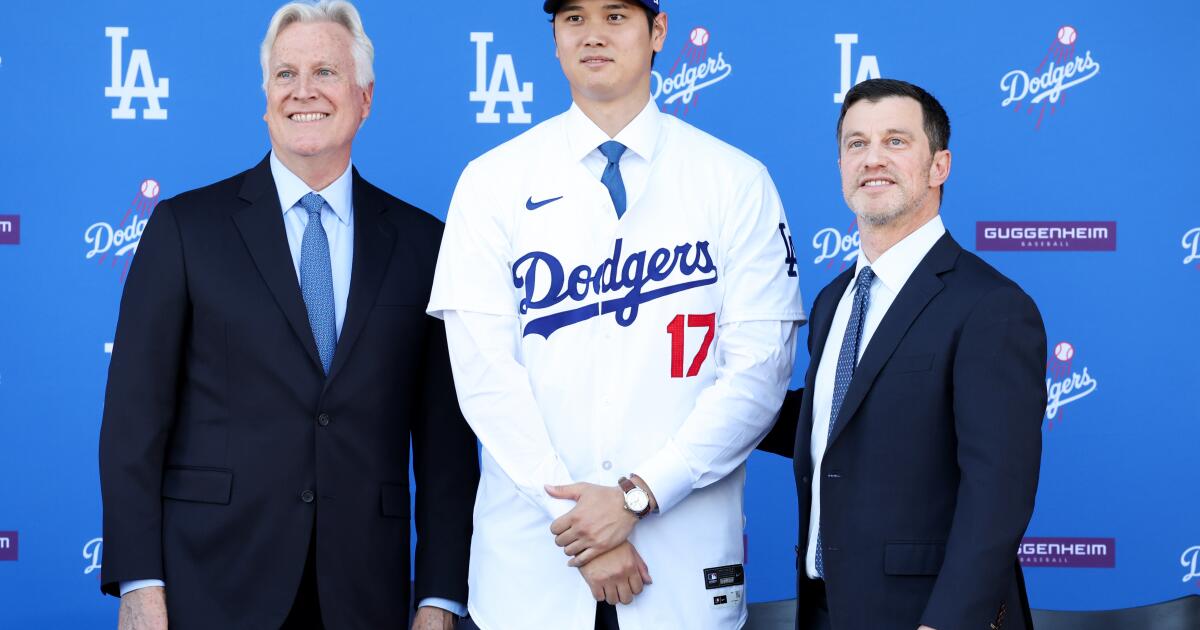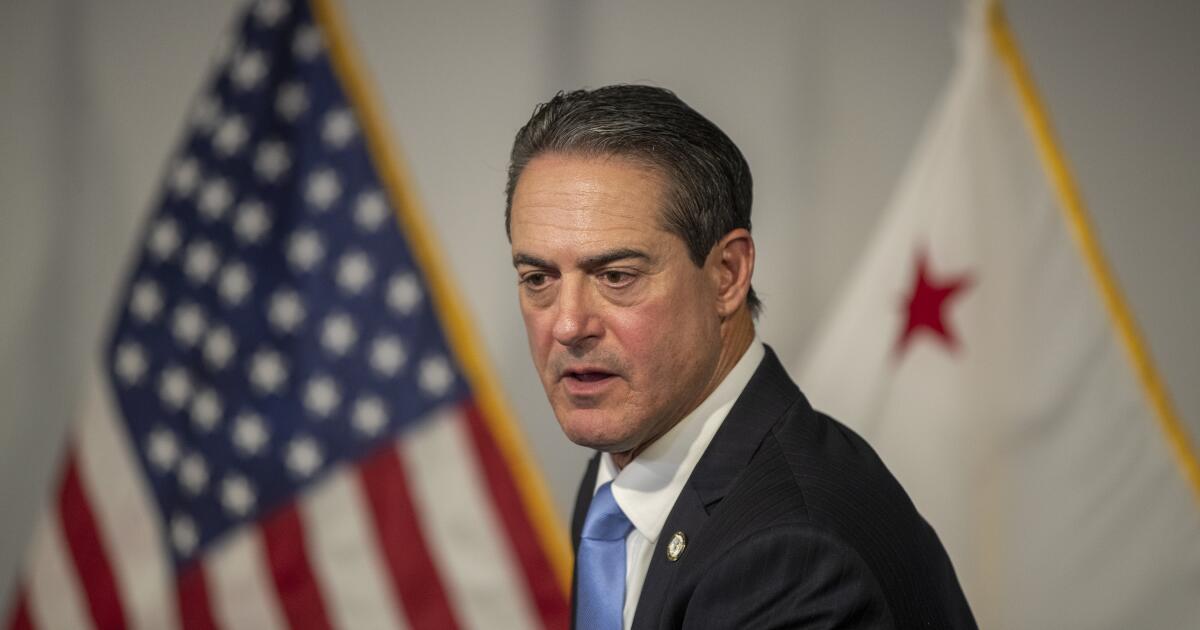It’s a bitter feud the likes of which are seldom seen in law enforcement circles — or at least those that boil over into public view.
For over seven years now, Orange County’s top prosecutor and a decorated former cop have been locked in an acrimonious dispute that shows little sign of abating. Both parties have accused the other of fractured ethics and corruption, and even an independent arbitrator likened the situation to a simmering cauldron.
Damon Tucker, a former supervising investigator for the county, has alleged in a lawsuit that he uncovered potential evidence of money laundering, terrorist threats and extortion by his then-boss, Orange County Dist. Atty. Todd Spitzer. Tucker claims in his lawsuit that Spitzer and others quashed the probe and then fired the investigator as an act of retaliation, leaving him humiliated and shunned by law enforcement.
Spitzer has publicly called Tucker a “dirty cop,” and accused him of working with his opponents — including former Orange County Dist. Atty. Tony Rackauckas — to launch an investigation to hurt him politically. Tucker’s behavior, Spitzer says, was a “disgrace to the badge.”
Now, in yet another escalation of this Orange County drama, Tucker has called on the California attorney general, the U.S. Department of Justice, the State Bar of California and other agencies to investigate Spitzer; the OCDA Bureau of Investigation Chief Paul Walters; and former Chief Assistant Dist. Atty. Shawn Nelson, who is now an Orange County Superior Court judge.
“These allegations must be fully investigated,” Tucker wrote in a letter to those agencies.“Failure to investigate these men casts a shadow over our system of justice.”
Tucker’s call for an investigation of events dating back nearly a decade comes as the district attorney’s office is already facing increased scrutiny over its treatment of employees. Both Spitzer and Nelson face a potential civil trial next week over accusations they retaliated against female employees who say they were sexually harassed by former Senior Assistant Dist. Atty. Gary LoGalbo, a onetime friend of Spitzer’s who is now deceased.
Spitzer and Walters have declined to discuss Tucker’s accusations with The Times. Nelson, through a court spokesperson, also declined, saying judges were prohibited by ethical rules from discussing cases before the court or in media reports.
The California Attorney General’s office confirmed that it is reviewing Tucker’s complaint but would not comment further. The State Bar has also begun a review of the allegations and has requested more information and documentation, according to a letter reviewed by The Times. A spokesperson for the State Bar declined to comment or confirm whether a complaint was received, adding that disciplinary investigations are confidential.
The U.S. Department of Justice would neither comment nor confirm that it had received the letter. Tucker said he also sent a letter to California’s Commission on Judicial Performance. The commission also declined to comment.
A veteran investigator of nearly 30 years, Tucker was fired from the DA’s office in December 2020 over allegations he had initiated a unilateral investigation into Spitzer shortly after he took office.
Tucker sued the county — alleging he was fired and retaliated against for uncovering corruption — and in 2022 he won his job back, along with lost wages. Last year, he received a $2-million out-of court settlement from the county, according to Tucker’s attorney.
Kimberly Edds, a spokesperson for the district attorney’s office, said a non-disparagement agreement signed by Tucker and Spitzer as part of the settlement prevented the office from commenting.
Tucker’s accusations date to an inquiry that was begun in October 2016, when another district attorney investigator, Tom Conklin, was assigned to assist the Fair Political Practices Commission in looking into allegations of campaign finance irregularities by Spitzer, who was at the time an Orange County supervisor but was considering a run for district attorney.
In his recent letter to multiple agencies, as well as in his lawsuit, Tucker alleges the investigation into Spitzer was left unfinished and, even though he and another investigator at one point suggested it should be forwarded to the FBI or state attorney general, the investigation was never referred to an outside agency.
A year after the 2016 investigation began, Conklin’s report was leaked to the Orange County Register, and the newspaper reported that Conklin had been unable to corroborate the allegations.
The leak came at a key time for Spitzer, who had just announced his campaign for district attorney. At the time, he told the Register the investigation had been politically motivated by his political rival, Rackauckas, and that nothing had been found. At the time, a spokesperson for Rackauckas confirmed the investigation but declined to comment on the allegations.
The leak sparked an internal investigation in the district attorney’s office and, when the initial investigator retired, Tucker was ordered to finish the case.
Tucker was tasked with finding out who leaked the report, but after reviewing the case, Tucker concluded that Conklin’s investigation was incomplete.
At least 10 identified witnesses in the case were never interviewed, and several leads had not been followed, according to an investigative summary written by Tucker, and given to a senior deputy district attorney he consulted with in the case.
During his investigation, Tucker reached out to superiors and colleagues at the district attorney’s office and said the allegations against Spitzer needed to be sent out to an outside agency, such as the FBI, for an impartial review.
Tucker said that as he continued to investigate and prepared to send the case to an outside agency, things suddenly changed.
The day after Spitzer was elected district attorney in 2018, Tucker said Walters ordered him to stop digging into the accusations, and to remove any mention of Spitzer’s name from questions in his investigation, according to an investigative summary and sworn depositions, taken in Tucker’s lawsuit against the county. Two days later, Tucker was removed from the case.
In a sworn deposition, Walters confirmed he ordered Tucker to remove questions about Spitzer from his investigation the day Spitzer became the district attorney-elect.
“That’s where I have to tell Tucker, ‘You can’t be asking all these questions about Spitzer,” Walters testfied. “It’s not the case. And I make him redact all that stuff.”
Tucker maintains that, up until the election, Walters supported his investigation.
“I was doing the right thing,” Tucker told The Times. “This should have been sent out.” Walters declined to respond to The Times about that accusation.
However, a spokesperson for the district attorney’s office said it was Tucker who refused to turn over the investigation.
“He was given the opportunity and declined to do so,” said Edds, the D.A’.s spokesperson. “He was offered the opportunity repeatedly.”
Tucker disputes that assertion.
Spitzer has characterized Tucker’s investigation as being politically motivated, and has pointed out in sworn depositions that Tucker had donated to his opponent, Rackauckas, and was friends with Rackauckas’ chief of staff, Susan Kang.
According to county records, Tucker made a $2,000 donation to Rackauckas’ campaign in August 2018, after he’d been assigned to investigate the leak.
Tucker had also been critical of Spitzer during the campaign in multiple Facebook posts, before and after he took up the case.
“I think they sent him off on this fishing expedition to get something on me after the primary election in 2018,” Spitzer said in a deposition. “He’s investigating me while he’s making a major campaign contribution to my opponent? That’s not objective.”

